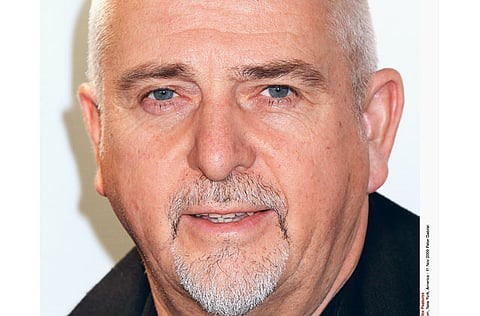We7 shows ad-funding can work for online music
In deals with four record companies and several independent labels

London: The online music service We7 has succeeded where many similar companies have failed: it has managed to get its advertising revenues to cover not only its own costs but, more importantly, the cost of the royalties it pays to the artists whose tracks it plays.
It may not sound like cause for celebration but after three years, We7, co-founded by Peter Gabriel, can lay claim to being the first company in the UK to prove that internet advertising can be used to fund a web-based on-demand music service that pays industry-standard royalties to musicians.
We7 has done deals with the big four record companies as well as a host of independent labels and is charged different rates by different labels. As a result, 1 million plays of a song on We7 would generate payments to the music industry of between £2,000 (Dh11,400) and £4,000, according to the company.
In March, for the first time, the advertising revenues generated by We7 met both its royalty costs and its running costs.
"This is our four-minute mile," said the We7 chief executive, Steve Purdham. "We have managed to pay a rate for every song that is being played and listened to on demand and pay for that by a rate of advertising that is just standard run-of-the-mill digital advertising, with nothing exceptional."
"We are not talking about one or two songs by one or two people," he added. "We have 3 million monthly unique users in the UK who come and consume music. And there were no advertising campaigns that were above the norm over the last month and none that were paying advertising rates that were above what you would expect a large scaleable operation to have."
Failures
The advertising-backed streaming music market is littered with failures, while other companies have become subsumed into larger organisations. Spiralfrog and Ruckus both collapsed last year despite having backers among the music labels.
Rival Qtrax, meanwhile, hit the headlines after a glitzy launch two years ago, only for it to emerge that it did not in fact have the rights to the tracks it was offering. It has still not launched. Last.fm was snapped up by CBS three years ago, while iMeem was shut down after being acquired by MySpace and late last year Apple bought Lala.
We7's biggest rival is Spotify, but the level of royalties paid to artists by that service appears opaque, sparking speculation that some artists such as Lady Gaga are being underpaid for their songs.
Swedish newspaper Expressen claimed last year that 1 million plays of Lady Gaga's hit Poker Face had earned the singer just $167 and earlier this month the British Academy of Songwriters, Composers and Authors accused Spotify of paying "tiny" amounts of money to artists.
In contrast, the payments to the music industry from We7 start with the standard streaming royalty rate as set by collection agency PRS for Music which collects on behalf of the music publishers which is currently 0.085p per stream or a share of advertising revenue, whichever is the highest.
- $167 Spotify paid for a million plays of Lady Gaga's song
- 0.085p We7 pays to music publishers per stream



